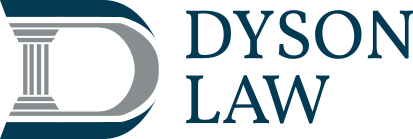While road accidents caused by motor vehicle collisions account for most personal injury cases, personal injury law encompasses much more. It covers any situation in which a person is hurt due to someone else’s negligence.
Personal injury law covers slip and fall accidents, unsafe working environments, defective consumer products, wrongful deaths, and medical malpractice, to name a few examples. If you or a loved one is hurt due to someone else’s carelessness or negligence and you decide to seek compensation for your injuries, don’t go it alone. A personal injury attorney can assess your case, work with the insurance company, negotiate a fair settlement, or, when necessary, proceed to trial.
In this article, Dyson Law, PLLC personal injury attorney Peter Dyson summarizes what you need to know about personal injury law. If you have suffered a personal injury and have any questions and would like to discuss your case, contact Dyson Law at (561) 498-9979 for a free case evaluation. We are here to help.
What is Personal Injury?
Personal injury occurs when someone is harmed due to negligence or an intentional act by another party. When you or someone you love is hurt as a result of someone else’s negligence or intentional act, you may be entitled to compensation. Compensation for medical expenses, lost wages, pain and suffering, and other types of compensation may be awarded.
A personal injury lawsuit is a court case in which someone is held liable for the personal injuries of another person. Under Florida negligence law, the injured person can demand that the responsible party compensate them for their losses. When a personal injury lawsuit is successful, the victim is compensated for their injuries and damages.
Defining Negligence
According to Florida Jury Instructions 401.4, negligence is the:
failure to use reasonable care, which is the care that a reasonably careful person would use under like circumstances. Negligence is doing something that a reasonably careful person would not do under like circumstances or failing to do something that a reasonably careful person would do under like circumstances.
To win a negligence case, you must show that the other party owed you a duty to act with care, that they failed to do so, that you were injured due to their failure to act with care, and that your injuries were caused directly by their failure to act with care.
Duty of Care: You must show that the responsible party had a legal obligation to act with reasonable care not to cause harm and that someone has acted carelessly or recklessly.
Breach of Duty: You need to show that this person or entity breached this duty.
Causation: You must present facts that demonstrate a link between the breach of the duty and the accident that caused your injuries.
Damage: You must prove that you sustained losses because of your injuries.
Florida negligence law allows you to seek fair compensation for your losses. A Florida personal injuries lawyer can assist if you have questions and are ready to proceed with your case.
Comparative Negligence
Florida is a comparative negligence state. This means that if a plaintiff (the party seeking relief from the court) is partially to blame for an accident in which they are injured, the amount of damages they can recover will be reduced. Any contributory fault attributed to the plaintiff reduces economic and non-economic damages in proportion to that person’s fault, but it does not prevent the plaintiff from recovering damages entirely.
Types of Damages
After establishing negligence, you must establish damages. Even if the other party was negligent, you are not entitled to compensation unless and until you sustain damages. In Florida, damages are classified into two broad categories: compensatory and punitive. The term “compensatory damages” refers to those caused directly by the negligent act. Punitive damages are awarded in response to a heinous act of negligence. Punitive damages are not as prevalent in personal injury cases as they are in other types of cases.
Compensatory damages are classified into two categories: economic and non-economic. Economic losses are those with a monetary value. Medical expenses, medication costs, rehabilitation therapy costs, and lost wages are all examples of economic damages. Non-economic damages are those lacking a monetary value but represent losses you sustained. A non-economic loss would compensate for the pain and suffering caused by the injury.
Florida is a No-Fault State
Automobile accidents are a notable exception to Florida’s personal injury laws. Florida is a no-fault state, which means insurance will cover injuries resulting from an accident up to $10,000 regardless of who was at fault. Every driver must have a personal injury protection (also referred to as PIP) policy covering at least $10,000 per person per accident. You can still claim against the other driver for past and future medical bills. But for pain and suffering, you need to prove a permanent injury.
If you are seriously injured in a car accident, Florida law allows you to file a personal injury lawsuit. Permanent injuries are serious and are defined in Florida law as those that result in:
- Significant and irreversible loss of a vital bodily function
- Other than scarring or disfigurement, permanent injury within a reasonable degree of medical probability
- Scarring or disfigurement that is significant and permanent
Types of Personal Injury Cases
As mentioned earlier, personal injury is not limited to injuries caused by motor vehicle accidents. In addition to car accidents, personal injury attorneys also handle the following types of personal injury cases:
- Catastrophic injuries
- Construction accidents
- Motorcycle accidents
- Negligent security claims
- Pedestrian accidents
- Plane accidents
- Premises liability
- Product liability
- Slip and fall
- Train accidents
- Truck accidents
- Wrongful death
What is the Statute of Limitations in Florida for Filing a Personal Injury Lawsuit?
When you or a family member is harmed due to a personal injury, you only have a limited amount of time to file a lawsuit in the appropriate court system. In most Florida personal injury cases, the statute of limitations is four years from the date of the injury. There are various reasons why the deadline may be shortened or extended in some instances.
As a result, you must contact a personal injury attorney immediately after the accident to preserve evidence from the scene, speak with witnesses, and prepare legal documents before the legal deadline.
Dyson Law, PLLC: Your South Florida Personal Injury Lawyers
If you suffered a personal injury, you might be entitled to compensation for your losses. Seeking this compensation is frequently a time-consuming and stressful process. The compassionate personal injury lawyers at Dyson Law, PLLC, can handle all aspects of your personal injury claim so you can concentrate on recovering from your injuries and receiving the treatment you need.
Our Delray Beach, Florida legal team has handled hundreds of negligence cases fighting for injury and accident victims. If you or a loved one has suffered an accident or sustained injuries, contact Dyson Law, PLLC today at (561) 498-9979 to set up your appointment for a free consultation with South Florida’s experienced personal injury lawyers. You can also fill out our contact form here.
Copyright © 2022. Dyson Law, PLLC. All rights reserved.
The information in this blog post (“post”) is provided for general informational purposes only and may not reflect the current law in your jurisdiction. No information in this post should be construed as legal advice from the individual author or the law firm, nor is it intended to be a substitute for legal counsel on any subject matter. No reader of this post should act or refrain from acting based on any information included in or accessible through this post without seeking the appropriate legal or other professional advice on the particular facts and circumstances at issue from a lawyer licensed in the recipient’s state, country or other appropriate licensing jurisdiction.
Dyson Law, PLLC
15300 Jog Rd, Suite 103
Delray Beach, FL 33446
(561) 498-9979
https://dysonlaw.com/


